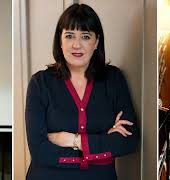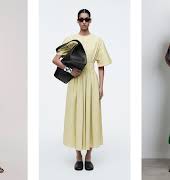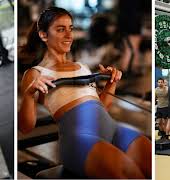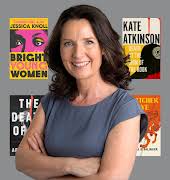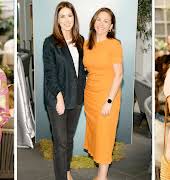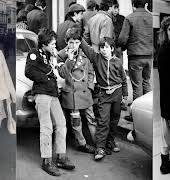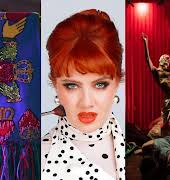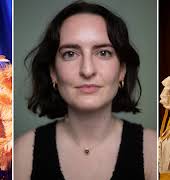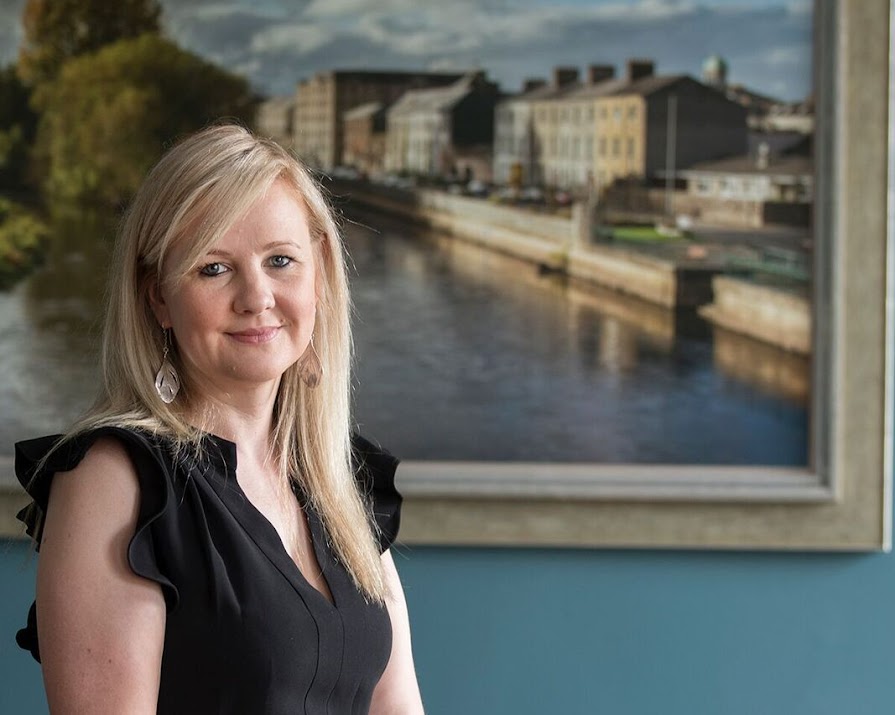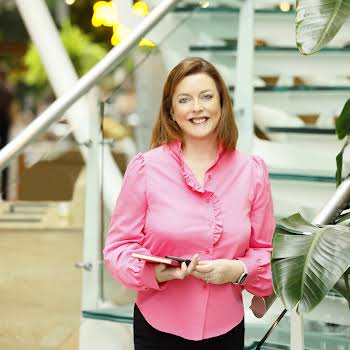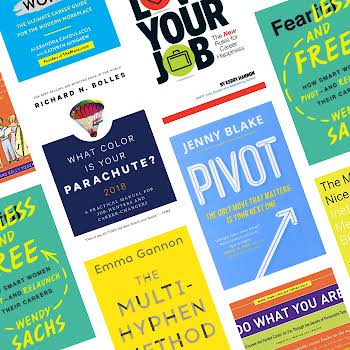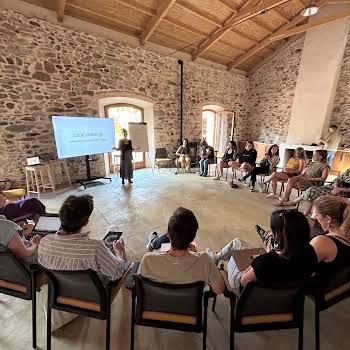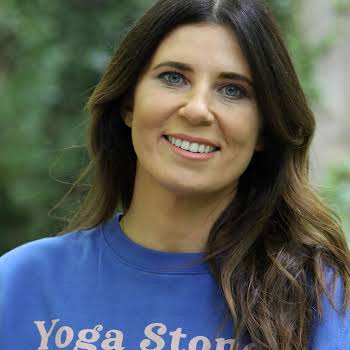
‘If I wanted to succeed, I had to do something I really loved’ – Nollaig Healy on How She Got Her Job
By Erin Lindsay
11th Jun 2018
11th Jun 2018
Women are making their mark in the world of business like never before. In every industry and at every level, we look to women who’ve made it their own as an example for us to do the same. For our latest series, entitled ‘How She Got Her Job‘, we ask women who have achieved stunning success in their field to tell us how they got there, and their advice on how we can join them.
A career in the arts is something that often seems out of reach for young graduates. But for Nollaig Healy, she knew she’d make it happen. With a background in marketing and barcode software, Nollaig’s break into the world of theatre came from herself; she marched up and demanded a job. Now, she directs the Clonmel Junction Arts Festival 18. On this week’s How She Got Her Job, she chats creativity, knowing what you want and regrets of the path.
What was your favourite subject in school?
English. I loved it. We had a great teacher which makes a huge difference. I remember going out to a local hall to put on a production of Juno & The Paycock and it completely transformed the way I viewed the play. It really opened up my eyes to the world of theatre.
What was your first job, and what other jobs have you had since?
My first real job was with a financial software company in Dublin. I worked there as a marketing assistant and it was a great job – I really loved it. I moved to Clonmel after my first child was born and got a job in a barcode software company. I was rubbish at the job, I just couldn’t get excited or enthusiastic about barcodes. After a short while, I realised that if I wanted to succeed, I had to do something I really loved. I read the book What Colour is Your Rainbow and decided that I wanted to pursue a career in the arts. I was a single mother of two young children then, so my options were geographically limited. I approached the Festival Director of Clonmel Junction Festival and basically talked myself into a marketing role there. I progressed onto General Manager of the Festival and then left a number of years back after some really great years establishing the festival as a standout annual event in the Irish arts calendar. Since leaving, I have worked as Marketing Manager of the Kilkenny Arts Festival, Dublin Fringe Festival, Visual Centre for Contemporary Art, Kilkenny Trad Fest and The Gate Theatre. This year I have made an exciting career change as I returned to the Clonmel Junction Arts Festival to take on my first role as Festival Director.
Happily though, I’m still really good friends with the management in the Barcoding company and they are one of the sponsors of the festival!
What does your daily routine look like?
It’s hectic. I’m awake at around 6.30 am and do a quick scan of my emails and of course, check what’s happening on Facebook and Instagram. When I am really busy, I need to exercise first thing in the morning. I get up around 7 am and go for a run or go to the gym. I’m lucky that there is a leisure centre right beside my house, so I go there and hop into the pool. I’m a terrible swimmer, but it’s very relaxing. I have two teenage boys in school (TJ is 17 and Oscar is 14) and they are thankfully old enough now to get themselves ready for school so that’s one less job for the morning. I drop them in at 8.30, grab a coffee, and I’m usually at my desk at 9.30.
Then I start into the manic daily rounds; making contact with artists and suppliers; contacting potential sponsors; seeking out the best venues and acts, and sorting all the elements that need to be taken care of to run a great festival but that are almost invisible in the end product – from funding applications to health and safety and governance procedures. It’s a very social job most of the time but very few people in the arts world work a regular 9-5 day, so late nights and weekends at the desktop, on the phone or travelling for meetings become a normal part of life. Especially as the summer arrives and the festival draws closer.
What’s your favourite part of the job?
I really love my job. You meet so many amazingly creative people, whose talent is simply awe-inspiring. It is such a buzz being able to programme some of your favourite artists in Clonmel and unearthing new gems who you just can’t wait to see bring something completely new to the town. I get so passionate about some of the acts- I am very definitely the friend who insists my friends must go to experience the festival and all of the great events, but they always thank me afterwards. I love the way art can completely change the way you look at things and sharing that wonder with others is the best part of festival life to me.
What’s your least favourite part?
Budgets. You’re always working in the unknown with funders and sponsors and ticket sales. That can be very difficult and stressful.
What are the key skills you need to make it in your industry?
Well, I suppose the key one is that you genuinely love the arts. The ability to multi-task and hold your nerve is incredibly important. There are constantly so many balls in the air, and you have to remember what you have programmed and figure out what you can slot where (and what you can afford). Being able to make decisions quickly is really important so you have to have a handle on all the working parts at all times to make sure those decisions are the right ones. The most important attribute to have though is grit. During festival time, you work really long days and don’t get a day off for weeks. You just have to suck it up and get on with it. It’s all worthwhile though when you look back at the fantastic works being brought to new audiences who are now as in awe of the artists as I was when I first saw their work in the planning stages of the Festival.
What are the most important lessons you’ve learned for success in your career?
It’s not the mistakes you make or the curveballs in the plans; it’s your ability to deal with them that counts.
Any regrets?
Not picking the subjects that I wanted to do in school; being told that girls who want to go to college should pick science subjects – I was rubbish at science! But in general, you should do things because you want to do them, not because you think it’s what other people want.
What do you wish you knew when you were starting your career?
Perseverance pays off. There were a few years when I was chipping away at work thinking I wasn’t getting anywhere, but it’s all working towards a goal. Sometimes, when you don’t see immediate results you think you are getting nowhere, but success takes time, hard work and patience.
What’s the number one piece of advice you would give to young people starting out who want to follow in your footsteps?
You really have to work hard. And network. Go to as many events as you can and volunteer. So often, good volunteers end up getting paid work and great jobs. We as a Festival always try to do this and the good volunteers always stand out. And be willing to take a chance. I got my start in the Junction Festival by taking a chance and approaching the Artistic Director about creating a new role. Ten years later, I’ve launched my first programme as Festival Director and am counting down the days to Clonmel Junction Arts Festival 18.

